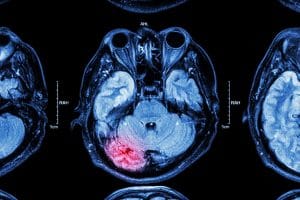“Sniff” Testing for Traumatic Brain Injury Victims May Offer New Hope
 It can be difficult to know whether anyone who has suffered a traumatic brain injury is minimally conscious or is in an unconscious state. The difference between knowing and not knowing a victim’s state affects the person’s treatment and chance for a recovery.
It can be difficult to know whether anyone who has suffered a traumatic brain injury is minimally conscious or is in an unconscious state. The difference between knowing and not knowing a victim’s state affects the person’s treatment and chance for a recovery.
A new study, according to a story in Stat News, offers hope for TBI patients from an unusual source. Typically, imaging tests of brain activity are not conclusive about which patients may improve. The study, conducted by Israeli scientists, focused on the victims’ sense of smell. How a patient responds to attractive smells such as shampoo or disgusting spells like rotting fish may help neurologists and other doctors understand the victim’s brain condition.
The study was reported in Nature. Neurobiologist Noam Sobel of the Weizmann Institute used the following simple test. The patients are given an odor to smell. Simply put, “If they sniff it, they’re conscious; if they don’t, they’re not.” Patients who do sniff the smell are likely to live for three years or more. Patients who don’t sniff the odor have a much lower chance of survival.
The study examined 43 patients with brain injuries using a nasal device to examine responses to shampoo and fish by measuring how much air the patient inhaled. A short quick sniff means the odor wasn’t pleasant. A large sniff suggests the odor was pleasant. Multiple smell tests were given each patient because patients can shift between consciousness and unconsciousness.
The test was found to be 100% accurate for patients who did sniff but only 65% accurate for patients who didn’t sniff – meaning that 35% of patients who didn’t sniff did regain consciousness. “In one case, the sniff test indicated a patient was regaining consciousness two months before any other measure showed that, Sobel said.”
The study needs to be done at other locations and must meet other protocols before it can be considered reliable. Still, the initial study offers hope that doctors can make faster decisions about a patient’s TBI than before – especially in places where access to sophistical imaging tools is limited.
According to Joseph Giacino of Harvard Medical School and Spaulding Rehabilitation Hospital, the sniff test can help determine whether a patient should be kept on life support. The sniff test is an additional test that can complement behavioral assessment tools and neuroimaging tools.
At Warren & Kallianos, PLLC, our Charlotte traumatic brain injury attorneys work with neurosurgeons, neurologists, physicians, therapists, counselors, and financial planners to accurately assess a patient’s diagnosis, physical limitations, emotional and financial needs. We fight to hold drivers, property owners, and anyone who caused a traumatic brain injury accountable for their negligence. To speak with an experienced TBI lawyer, call us at 704-377-7777, or use our contact form to schedule an appointment.

At Warren & Kallianos, we believe in the importance of working directly with our attorneys, Jeff Warren and Chris Kallianos. When you work with our firm, Jeff and Chris are always accessible to you throughout the progress of your case.
Read more about Warren & Kallianos, PLLC
